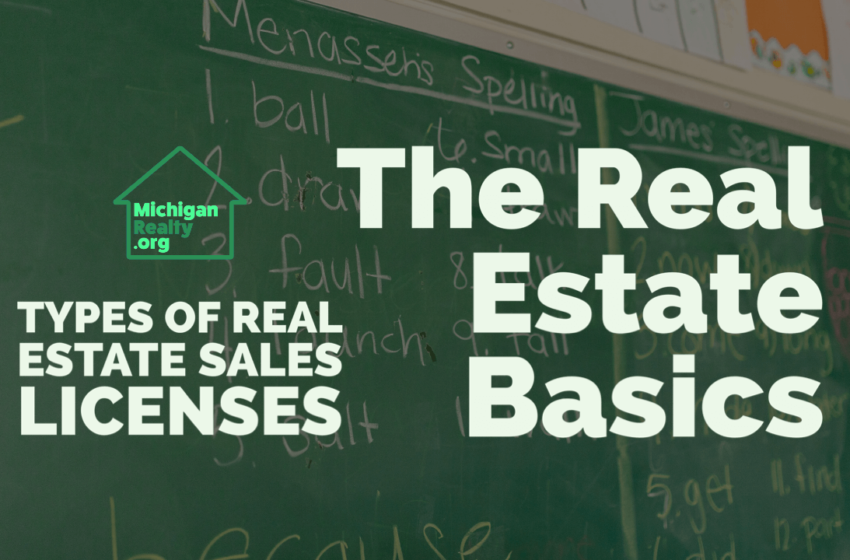Real Estate Basics – The Different Real Estate Sales License Types

Did you know there are different real estate license types? If you want to sell real estate and you’re curious to learn about real estate license types, then this article is for you. We’re going to demystify the legal structure that allows individuals to become licensed real estate sales professionals (in Michigan).
Let’s begin.

Key Terms to Understand
Since we are writing this in Michigan, USA we will reference Article 25 of Chapter 339 of the Michigan Compiled Laws. There are three real estate sales license types in Michigan: “real estate broker,” “associate real estate broker,” and “real estate salesperson.” In this article we will focus on these three real estate sale license types.
Real Estate Broker
Think of a “real estate broker” as the captain of the ship. A Broker can be either an individual or a business entity that regularly engages in real estate transactions as their primary occupation. Involved in all aspects of real estate transactions. They can buy, sell, or lease property, list properties for sale, provide market analyses, manage properties, arrange mortgages, and more. If you imagine someone whose career revolves around managing, advertising, buying, renting, or selling real property, you’re thinking of a real estate broker. A licensed real estate broker is someone who does all these things and has obtained the proper license under Michigan law.
Associate Real Estate Broker
Next up is the “associate real estate broker.” This person or business entity does everything a real estate broker can do, but with two key differences. Firstly, they are titled an “associate broker” under Michigan law. Secondly, they work under a licensed real estate broker, either as an employee or as an independent contractor. Associate brokers often take on managerial or authoritative roles within brokerage operations. Someone with an associate broker’s license could be designated a managing or supervisory role at a new branch location for the brokerage, whereas a real estate salesperson could not fill that role.
Real Estate Salesperson
Finally, we have the “real estate salesperson.” This role is reserved for individuals, not business entities, and they can perform all of the same tasks as brokers and associate brokers. However, they work under a licensed real estate broker and are licensed as a “real estate salesperson” under Michigan law. The main differences between salespersons, brokers, and associate brokers lie in their ownership level, management responsibilities, employment status, and licensure.
These are the differences between the real estate titles Broker, Associate Broker, and Salesperson. If you enjoyed reading this article you may benefit from reading other articles we publish.
go back to the home page here.
Visit our youtube channel here.
Disclaimer: This is not legal advice or real estate advice, and no consumer should rely on this article in the pursuit of either interest.


